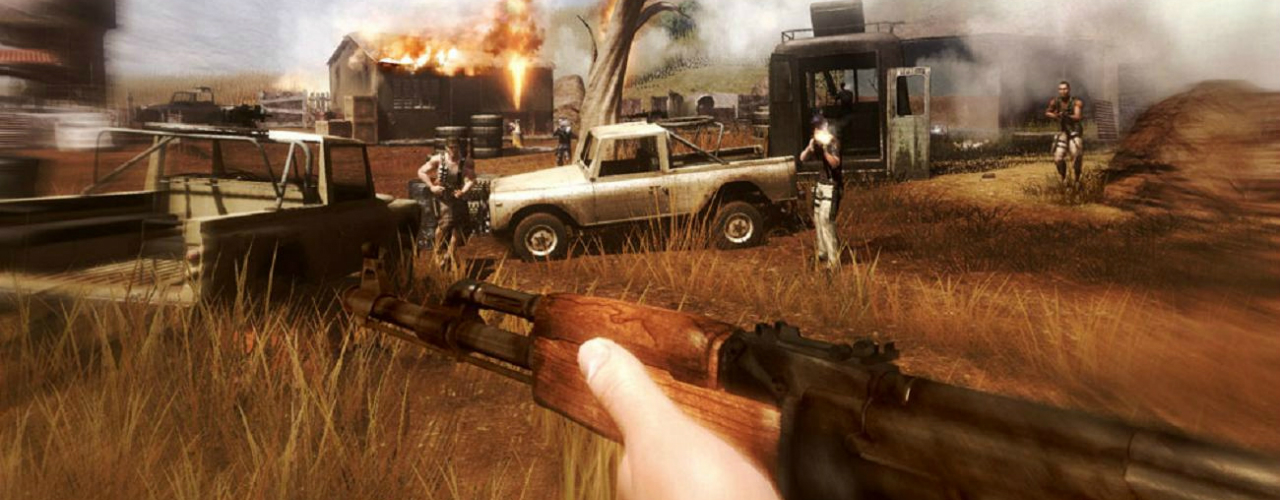He’s tall, the man who stands before me. He’s wearing a tribal homespun shirt, combat trousers and hiking boots. I’m staring down the barrel of the gun he holds in his hand, the Colt he found in my briefcase.
“What your employers don’t seem to understand is that nobody kills me. I decide who lives, I decide who dies. ME.”
He swings a machete at my face. It misses by a hair, lodged to the hilt in the wall above my head.
My vision blurs jaundice-yellow- sick with malaria. The stranger tosses the pistol aside as I fall back in the bed, the world fading out in a yellow haze.
Welcome to hell.
Days later, I’m crouched in the bushes beside a small bungalow buried deep in the jungle, staring down the sights of a rifle at two men standing guard. I’ve just received a call from the man who gave me the gun. “No one would care if something happened to the men at that outpost.” I’m sweating in the humid African air.
The gun must be heavy—a German battle rifle trucked through swamps and mud and savannah, loaded down with 30 rounds of high-caliber ammo. (Who loads 30 rounds in a G3? I wonder to myself). It was probably smuggled into the country in the dead of night. Probably by the same man who held a gun to my head so recently. I can see rust glinting on the barrel in the light that flickers through the trees.
I rest my sights on the man closest to me. He sighs as he stares off into the distance. Probably about to take a leak. He says something offhand to his buddy, who’s standing guard absentmindedly somewhere to my left. He’s white, South African accent, maybe a private security guard, got bored of guarding high-rises in Cape Town. Maybe he’s Zimbabwean, cut loose by his country’s descent into inflation and chaos. I switch to my machete.
The man gasps as I cut him down. I hear movement as his friend reaches for his gun, left slung on his shoulder like an amateur, but I’m already up and firing. A single burst and he’s down. Pfft. Gone.
There’s movement behind the house. I wheel my sights around as the third man, unseen, pops off his sidearm, a bullet grazing me in a haze of red. I get down. I wait, finger tense on the trigger. He fires again, and I put two bursts where I see his muzzle flash. No more shots.
My phone rings again. “Get some sleep,” the voice on the other end says. “I’ll call you when I have another job for you.”
I go into the dead men’s hut and fall asleep on their cot.
Far Cry 2 may be one of the most broken games I’ve ever played. A friend once described it to me as “A glorified tech demo,” and he’s not far off the mark. Ubisoft’s follow-up to Crytek’s original ditched the setting, characters and premise of the first game entirely, instead setting the action in a huge open world in a fictional African Country. Their ambition is certainly commendable, though it came at a price - Far Cry 2 was incredibly buggy at release, a huge system hog, and critical and player opinion was mixed. But somewhere amidst the awful save system, and the annoying amount of respawning enemies that want to kill you before you even get to the mission staging area, the game takes on a life of its own.
A full playthrough of Far Cry 2 is a lesson in letting your mind fill-in the blank spaces left by the game developers. Because the plot is so sparse and so thinly told, you begin seeing a logic that isn’t there. In the silences where your protagonist says nothing to the people who hire him out for death and destruction, you make your own story.
Even The Jackal, the game’s villain, is a mix of fact and fiction - such a mystery in popular memory that little distinction remains between the myth and truth. There was a real man they called The Jackal - Illich “Carlos” Ramirez Sanchez, a left-wing terrorist of the 1970’s. French intelligence had him drugged, then snuck him out of Sudan in shackles back in the 90’s. But even “Carlos” was only given the nomme de guerre of “Jackal” by the French press—the original “Jackal” was a creation of English author Fredrick Forsyth’s novel The Day of the Jackal. In the world of Far Cry, what’s real and is not occasionally becomes hard to distinguish - something that the sequel (the excellent Far Cry 3) explored much more directly.
In Call of Duty, you shoot hundreds of enemy combatants, soaking up bullet after bullet with only a brief pause to heal before the carnage continues. Your targets feel like clay pigeons, not flesh-and-blood. Yet in Far Cry 2, killing your enemies feels visceral, even brutal. Your weapons are loud, spit smoke and thunder and will jam, forcing you to pound the reload key frantically, even as mortars and bullets burst around you. If you’re injured badly, you’ll watch as your character violently resets bones, rips slugs from his limbs, or has a buddy drag him to safety while firing a handgun over your head. Firefights feel like desperate scrambles for survival - particularly on higher difficulties - and it’s hard not to feel a bit of elation when you emerge from them alive. Yet somehow the waves of mercenaries you kill still seem trivial; life is cheap in Far Cry 2’s vision of war-torn Africa.
Despite its flaws, Far Cry 2 has developed a large fanbase over the years. Mods have been developed to smooth over its rough edges and add new features, and it’s not uncommon now to see plenty of people declaring it to the best installment in the series. One player took this devotion to the extreme: Ben Abraham fell so in love with the game that he started a blog series called Permanent Death, a first-person in-character account of his time playing the game under Iron Man conditions. His completed series is free to download as a whopping 391-page long document, and it’s well worth a read, so feel free to check it out.
In a lot of ways, Far Cry 2 is one of the closest experiences I’ve had in a video game to reading a war memoir—that is to say, it’s disjointed, doesn’t make a whole lot of sense in the moment, and will remind you of the precarious line between life and death. Criticisms of the game are completely valid, with the broken mechanics and somewhat Orientalist allusions to Joseph Conrad’s Heart of Darkness being of particular note. But in the empty spaces where the game says nothing, the players own voice sometimes makes itself heard. That’s when a flawed game like Far Cry 2 can strike a chord you never expected it to.

